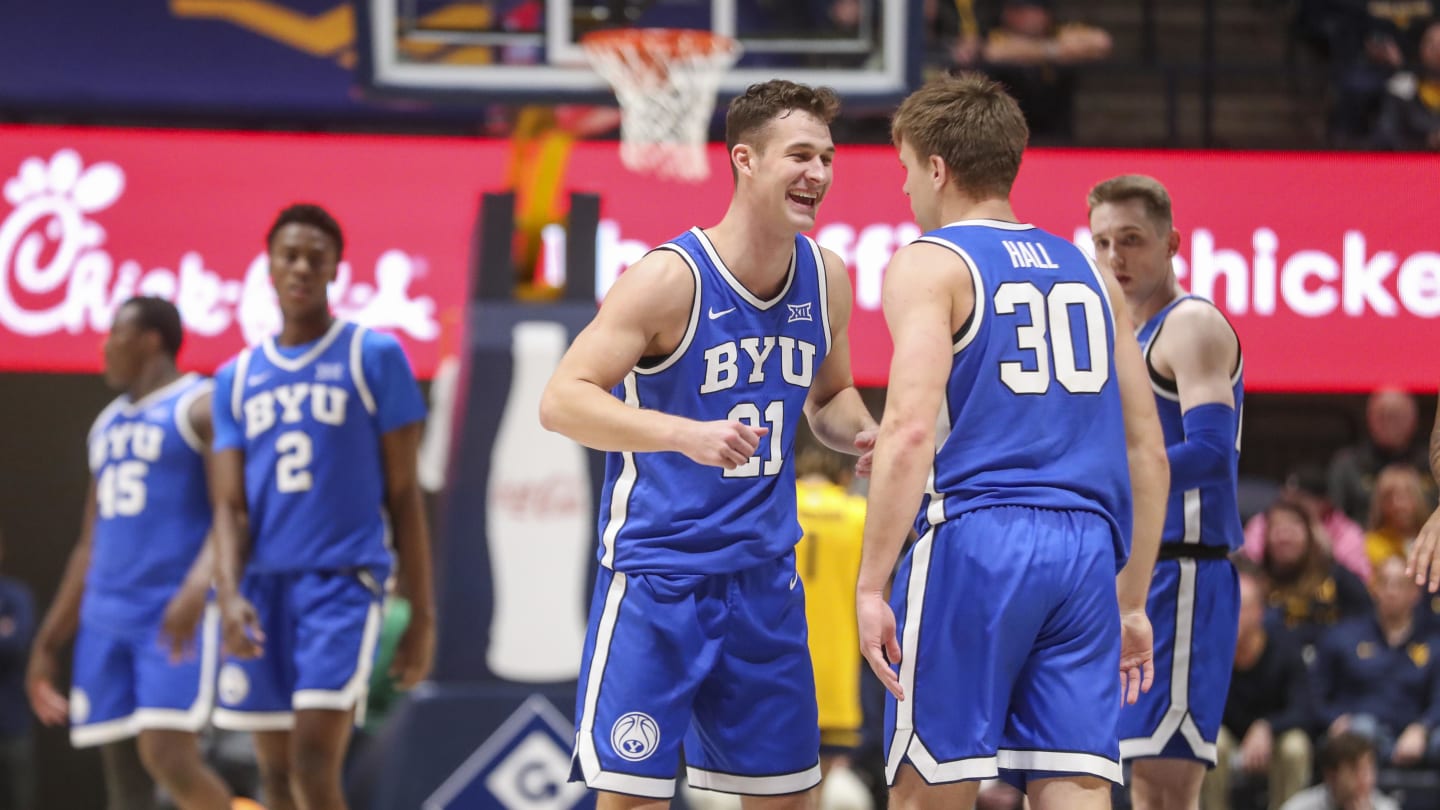Basketball
Why Roster Continuity Could be BYU Basketball’s Secret Weapon, Even With Recent Top Recruits

In college basketball, where the offseason feels like a tornado of transfers and recruiting, the steadiness of roster continuity is often overlooked. For BYU basketball, this just might be the biggest key to success as the team prepares for another Big 12 season led by new head coach Kevin Young.
When it comes to building a successful college basketball program, retaining a core group of players can be just as important as bringing in new talent. Teams that manage to keep their top players from season to season usually have an edge. This continuity helps in a few main ways:
Team Chemistry
Players who have played together for multiple seasons naturally develop a deeper understanding of each other’s games. They know their teammates’ tendencies, strengths, and how to react under pressure. This kind of chemistry is something that can’t always be quickly built with new players and often shows in the fluidity and cohesiveness of a team’s play on the court.
Experience and Leadership
Veteran players who have been through the ups and downs of previous seasons bring invaluable experience to the table. They’ve seen what works and what doesn’t, and they can guide younger players through tough situations. Their leadership is crucial, especially in high-pressure moments and close games.
Strategic Consistency
Returning players are already familiar with the team’s system and the coach’s expectations. This allows for more advanced strategies and plays, as the team doesn’t need to spend as much time on basics. It also means the coaching staff can build on the previous season’s successes and make refinements rather than starting from scratch.
When Kevin Young took over the reins at BYU, the program was at a pivotal point full of unknowns. There were concerns about how the team would handle the transition, especially with the possibility of players leaving through the portal. However, Young’s ability to retain some of those key players has provided a stable foundation for the team.
Key Returning Players:
Dallin Hall: He’s the team’s floor general, and he had a huge developmental season last year. Hall’s return ensures BYU has a steady and experienced presence running the offense.
Richie Saunders: If we’re being honest, the Marriott Center wouldn’t be the same without fan-favorite Richie. Known for his defensive skills and versatility, Saunders adds grit and reliability on the wing.
Trevin Knell: With his sharpshooting ability and experience, Knell is a very valuable asset for the Cougars, providing leadership and scoring from the perimeter.
Fousseyni Traore: Is it really a home game if the crowd doesn’t chant Fouss’s name at least once? His dominance in the paint gives BYU a strong inside presence, crucial for battling against the tough competition in the Big 12.
These four create a strong foundation for the team to build on, which allows new recruits like Egor Demin, Keba Keita, Mawot Mag, Kanon Catchings, and Elijah Crawford to learn the new culture more smoothly.
Looking around the Big 12, it’s clear that successful teams rely on a blend of roster continuity and new additions. Take Houston, for example. The Cougars, under Kelvin Sampson, have consistently been a powerhouse by retaining their core players while adding key pieces as needed. This offseason, players like L.J. Cryer and Emmanuel Sharp returned, providing stability and experience, while strategic additions like Milos Uzan helped fill specific gaps.
Similarly, Iowa State has thrived by keeping a solid base of players like Tamin Lipsey and Keshon Gilbert. Coach T.J. Otzelberger came into the program and built a championship contender from scratch, and he has improved on this core by adding players like Joshua Jefferson to address specific needs. This has kept the Cyclones among the top teams in the conference.
While BYU’s new recruits are exciting and bring fresh skills to the team, it’s the returning players who will be the glue that holds everything together. Kevin Young’s strategy appears to be a smart mix of leveraging the stability provided by his veterans while integrating the dynamic abilities of newcomers.
As BYU basketball gears up for the 2024-25 season, the combination of experienced, returning players and top-tier recruits has the potential for a successful season. In a college basketball environment where the transfer portal and NIL deals create constant change, bringing back its core of players could be BYU basketball’s secret weapon. Kevin Young’s ability to blend continuity with new energy could set the stage for a season of success and growth for the Cougars.










